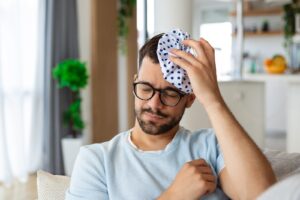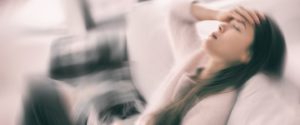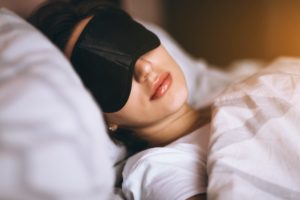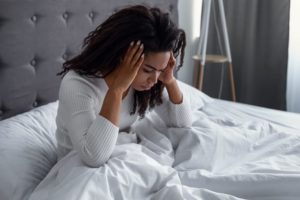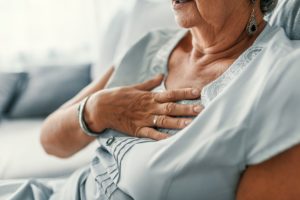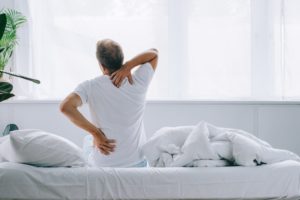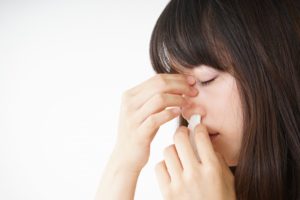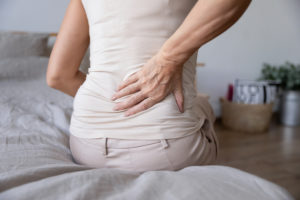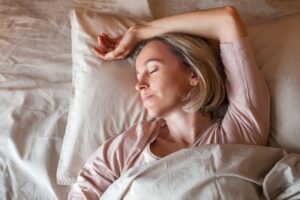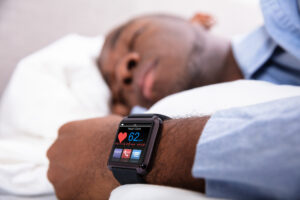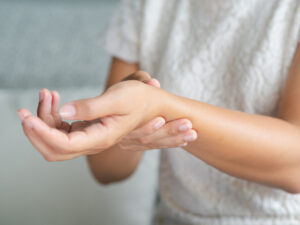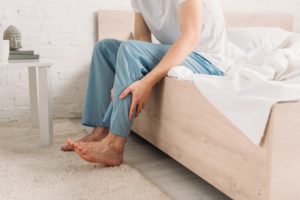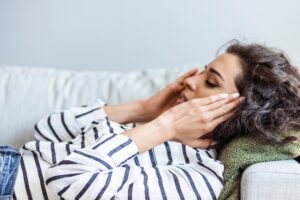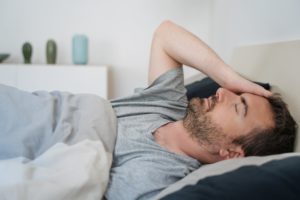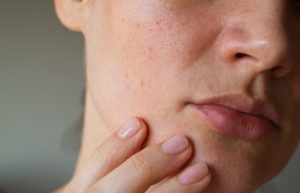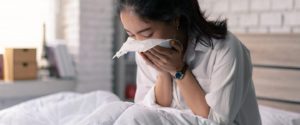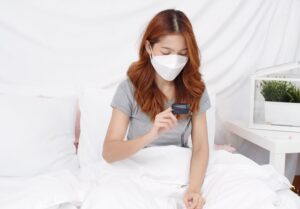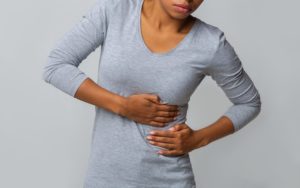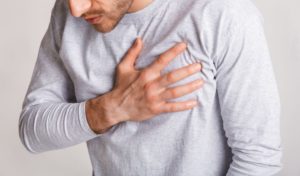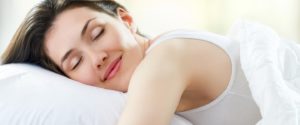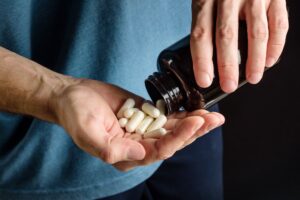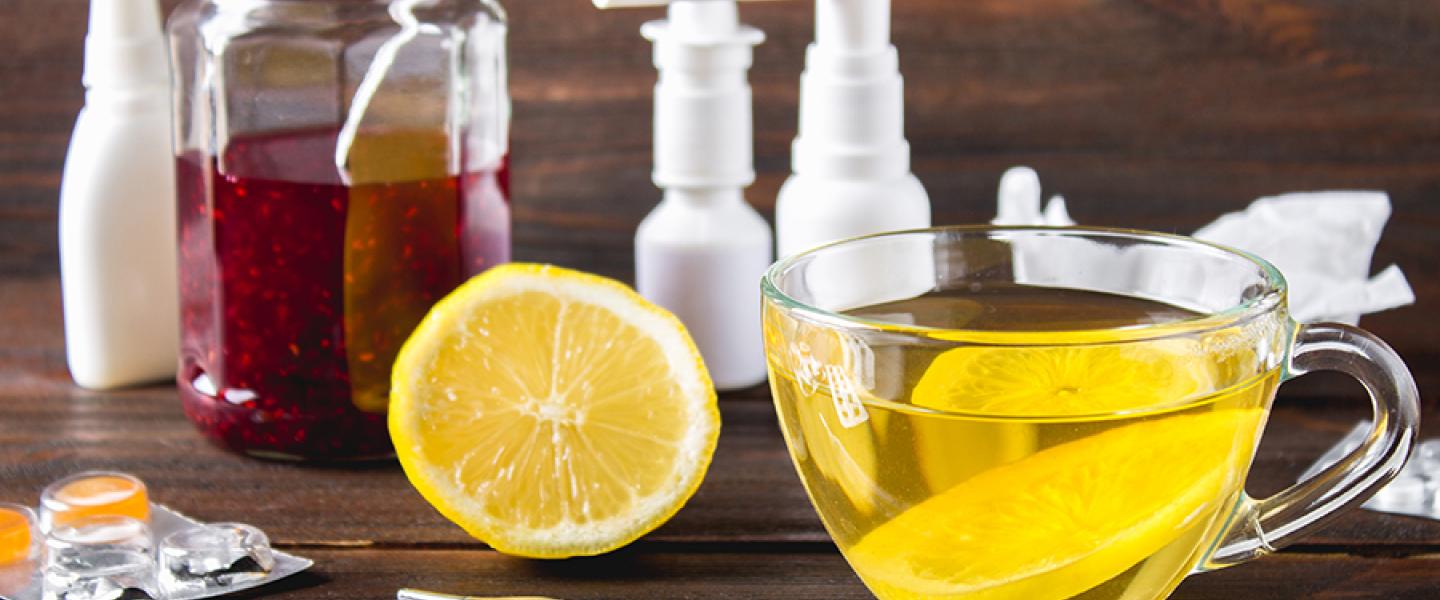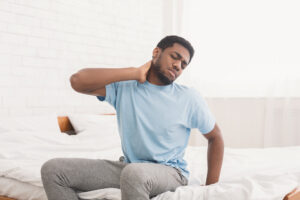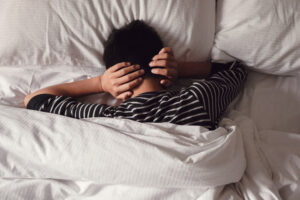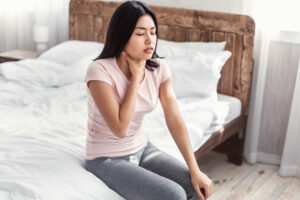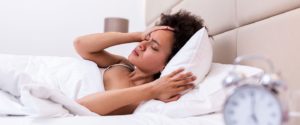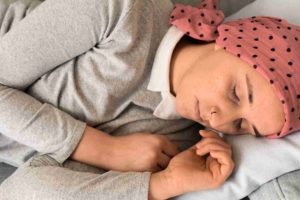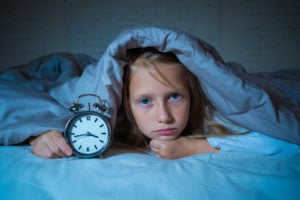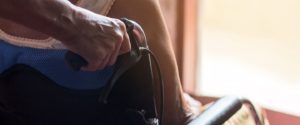Waking Up With a Dry Throat: What Causes It and How Do You Treat It?
- Waking up with a dry throat can have a variety of causes.
- People who wake up with a dry mouth or throat are more likely to sleep poorly.
- Causes of dry throat include specific medications, dehydration, snoring, and reflux.
- Dry throat remedies include using a humidifier in your bedroom, addressing allergens, and treating conditions like obstructive sleep apnea.
- See a doctor if you experience difficulty swallowing or breathing or see white patches in your mouth.
Waking up with a dry throat can be frustrating, especially if you are unsure of its cause. In addition to experiencing discomfort, people with dry mouth — often associated with a dry throat — are more likely to experience poor sleep quality. We discuss some of the most common reasons why people might wake up with a dry throat, and how to address them.
Medications and Health Conditions
A number of medications and physical health conditions can cause a dry or sore throat, which may occur along with a dry mouth. Examples of health conditions that can contribute to dry mouth include diabetes and Sjögren’s syndrome. Stress, anxiety, and depression may also contribute to dry mouth.
Most studies have found that dry mouth is more common in people born female, possibly due to anatomical differences in the salivary glands. Older adults often experience dry mouth, which may be partly because they are more likely to have underlying health conditions. People who have experienced head and neck radiation may have a drier mouth overall.
Are You Waking Up With a Dry Throat?
Answer three questions to understand if your dry throat is a concern you should worry about.
Dehydration
Dehydration can cause dry mouth and other symptoms such as a headache or thirstiness . Mouth breathing and being in a dry environment may also dry the throat, even if these do not lead to full-on dehydration. As part of the natural fluctuation of the circadian rhythm, less saliva tends to be released at night, so a dry throat may be more noticeable in the morning.
Mild dehydration is usually nothing to worry about, and can often be prevented by drinking plenty of fluids throughout the day. However, if you often wake up at night to use the bathroom, consider cutting down on fluids in the leadup to bedtime, especially alcohol and caffeine.
Gastroesophageal Reflux Disorder (GERD)
Gastroesophageal reflux disorder describes a condition in which the contents of the stomach come back up the esophagus. GERD can cause symptoms such as heartburn, wheezing, and a sore throat. Lying down can worsen GERD symptoms, because gravity makes reflux easier in this position. To reduce symptoms of GERD, doctors usually recommend elevating the head of the bed and avoiding potential trigger foods.
Snoring
Snoring and sore throats often go hand in hand and share risk factors, such as smoking and obstructive sleep apnea. More research is needed to determine whether snoring causes a sore throat or a sore throat causes snoring. Breathing through the mouth may dry out the throat in people who snore, and vibrations from the snoring itself may also irritate the throat.

Sleep Apnea
People with sleep apnea are more likely to experience dry mouth upon waking up, and the likelihood of having a dry mouth on waking increases with the severity of the sleep apnea. In a recent study, authors found that this connection may be due to differences in body mass index (BMI), rather than sleep apnea itself. Obesity, one of the risk factors for sleep apnea, is also thought to contribute to salivary gland dysfunction.
Breathing through the mouth is common in people with sleep apnea, and this may also dry out the mouth.
CPAP Therapy and Other Sleep Apnea Treatments
Continuous positive airway pressure (CPAP) therapy is the gold standard treatment for sleep apnea. Because the device delivers constant air pressure through the mucosal tissues, dry mouth is a common CPAP side effect and is the reason some people stop using their CPAP machine. Experts have also noticed that some people experience dry mouth from CPAP despite breathing with their mouth closed. This dryness may be due to changes in pressure within the mouth that affect saliva production.
Some studies have found that using a heated humidifier with a CPAP machine may help minimize dry mouth symptoms, though more research is needed.
Surprisingly, other studies have found that using CPAP therapy may actually improve dry mouth symptoms . This may be particularly true of CPAP machines with nasal masks that do not require the person to breathe through their mouth.
Another device used to treat sleep apnea, called a mandibular advancement splint, may cause dry throat.
Allergies
Nasal obstruction is one of the primary symptoms of allergic rhinitis. This umbrella term encompasses hay fever as well as year-round allergies to indoor triggers, such as dust mites and pet dander.
As a result of having a blocked nose, people with allergies often breathe through their mouths. A study conducted in Thailand found that children with a blocked nose from allergies were more likely to experience restless sleep and a dry throat . Although antihistamines improve many allergy symptoms, some may also cause dry mouth.
Pollution
Airborne pollutants from moisture-damaged buildings may contribute to throat discomfort, as well as worsening asthma and allergy symptoms. One Finnish study found that teachers who worked in classrooms with higher dust toxicity levels were more likely to experience symptoms such as hoarseness, mucus, a dry cough, or an itchy throat. Environmental conditions, such as cold or dry air, can also cause a sore throat and inflammation in the nose.
Studies have also found a relationship between sore throats and air pollution from traffic, fireplaces, pesticides, and factories. Many chemicals cause inflammation that can contribute to chronic airway diseases after long-term exposure.
Shouting or Talking More Than Usual
A Brazilian study found that community health agents who need to talk frequently for their jobs often experience hoarseness, voice failure, and a dry or burning throat. Researchers have proposed that a sore throat following excessive use of the voice may be due to physical strain on the muscles involved.
Smoking or Secondhand Smoke
Multiple studies have confirmed that cigarette smoke can contribute to a sore throat for smokers as well as the people around them. Tobacco smoke and nicotine contained in cigarettes are believed to irritate the nasal passages, interfere with the body’s self-cleaning mechanisms, dampen the immune system, and directly influence pain and sensory pathways.
Viral Infections
A sore throat may be caused by a viral infection such as the common cold or, more rarely, a bacterial infection. For viral causes of a sore throat, over-the-counter medications can usually help alleviate symptoms. Antibiotics should not be used unless a doctor has confirmed that the sore throat is due to a bacterial infection.
Treatments for Waking Up With a Sore Throat
The best way to soothe or prevent a dry throat in the morning depends on what causes it. For example, a sore throat caused by allergies may be best treated by removing the allergen source and taking antihistamines. However, certain habits may help reduce a dry throat in the morning:
- Breathing through your nose instead of your mouth
- Staying well hydrated throughout the day
- Using a humidifier in your bedroom
- Treating underlying conditions, such as obstructive sleep apnea
- Eliminating allergen sources
- Taking voice training lessons to reduce strain on the vocal cords
- Eating soft foods that are not too dry or spicy
- Cutting down on tobacco, sugar, caffeine, alcohol, and acidic drinks
There are also ways to soothe a dry throat in the morning if you do end up with discomfort despite your precautions:
- Sucking on a throat lozenge or ice chips
- Taking over-the-counter antiinflammatories
- Chewing gum
- Asking your doctor for a prescription saliva substitute
- Drinking something warm
Individuals who experience dry mouth from a health condition or medication might want to ask their doctor for a mouth spray to relieve symptoms, although these are generally not recommended for long-term use. Another alternative is to adjust the dosage or timing of medications, in consultation with the prescribing doctor.
Dry mouth can increase the risk of dental problems, so people who regularly wake up with a dry throat may need to pay extra attention to oral hygiene.
When to Talk to Your Doctor
Many dry throat causes can be easily treated at home, but in some cases, a dry throat may be a symptom of an underlying condition. Seek treatment sooner rather than later if you experience:
- Trouble swallowing or breathing
- Recurring sore throats without a clear cause
- Infection symptoms such as a fever or joint pain
- Dry mouth that lasts a long time despite self-care precautions
- Burning or white patches in the mouth
Most sore throats can be managed with over-the-counter pain medications. Less commonly, sore throats are caused by a bacterial infection and require antibiotics.

Still have questions? Ask our community!
Join our Sleep Care Community — a trusted hub of sleep health professionals, product specialists, and people just like you. Whether you need expert sleep advice for your insomnia or you’re searching for the perfect mattress, we’ve got you covered. Get personalized guidance from the experts who know sleep best.
References
7 Sources
-
A.D.A.M. Medical Encyclopedia. (2022, February 18). Dehydration. MedlinePlus., Retrieved February 21, 2022, from
https://medlineplus.gov/ency/article/000982.htm -
Bortolotti, M. (2017). The cause of dry mouth during CPAP application. Journal of Clinical Sleep Medicine, 13(4), 647.
https://pubmed.ncbi.nlm.nih.gov/28162149/ -
Soudorn, C., Muntham, D., Reutrakul, S., & Chirakalwasan, N. (2016). Effect of heated humidification on CPAP therapy adherence in subjects with obstructive sleep apnea with nasopharyngeal symptoms. Respiratory Care, 61(9), 1151–1159.
https://pubmed.ncbi.nlm.nih.gov/27220350/ -
Avlonitou, E., Kapsimalis, F., Varouchakis, G., Vardavas, C. I., & Behrakis, P. (2012). Adherence to CPAP therapy improves quality of life and reduces symptoms among obstructive sleep apnea syndrome patients. Sleep & Breathing, 16(2), 563–569.
https://pubmed.ncbi.nlm.nih.gov/21667216/ -
Poachanukoon, O., & Kitcharoensakkul, M. (2015). Snoring and sleep problems in children with and without allergic rhinitis: A case control study. Journal of the Medical Association of Thailand, 98 Suppl 2, S138–S144.
https://pubmed.ncbi.nlm.nih.gov/26211115/ -
Salin, J., Ohtonen, P., Andersson, M. A., & Syrjälä, H. (2021). The toxicity of wiped dust and airborne microbes in individual classrooms increase the risk of teachers’ work-related symptoms: A cross-sectional study. Pathogens, 10(11), 1360.
https://pubmed.ncbi.nlm.nih.gov/34832514/ -
Murta, J., Barbosa, M. S., Caldeira, A. P., Barbosa-Medeiros, M. R., & Rossi-Barbosa, L. (2021). Factors associated with voice complaints in community health agents. Fatores associados às queixas vocais autorreferidas por agentes comunitários de saúde. CoDAS, 33(1), Article e20200017.
https://pubmed.ncbi.nlm.nih.gov/33886748/


